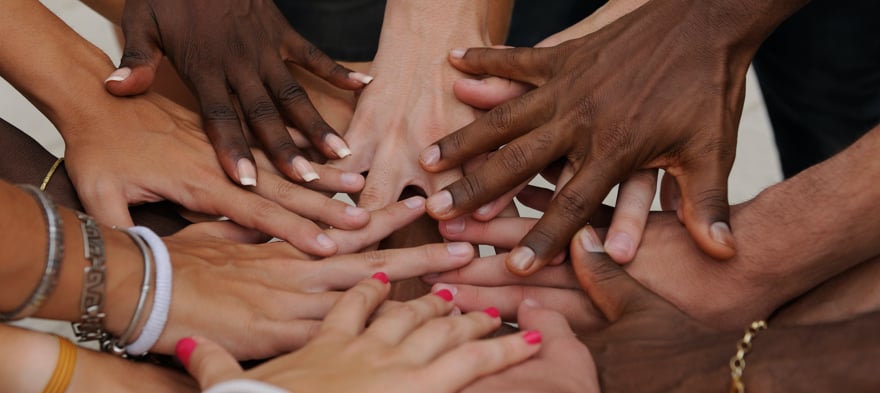
During my 33-year journey in public education, I’ve repeatedly experienced the power of unity in achieving desired student outcomes, especially since founding a charter public school in a high need community in Los Angeles with 100 families.
More than 20 years ago, those families and I were pioneers, creating the first charter middle school in Los Angeles County. Knowing that achievement was abysmal at the local middle school, and fearing for their children’s safety, parents were desperate for a better option. I felt the same way, having spent 12 years teaching public school in the community. [pullquote position="right"]Trying to reform the conditions that had led to a 50% dropout rate at the local high school felt like banging my head against the wall.[/pullquote]
When I received a charter school startup grant, it took only two weeks to recruit the 100 founding families. Yet we were greeted with skepticism and negativity by our intended authorizer, the Los Angeles Unified School District.
As we launched into a war reminiscent of David and Goliath, I experienced the power of unity.
[pullquote]Despite our differences in backgrounds and cultures, the parents and I were one when it came to the vision of our school.[/pullquote] One evening when I felt particularly discouraged, I told the parents that in case we couldn’t make our dream a reality, they should make sure they could enroll their children in the local middle school.
From my book Passionate Warrior: My Charter School Journey:
There was silence in the auditorium, and then one of the fathers stood up. He said that he would rather have six months in our middle school than a year at Maclay Middle School, and that he was absolutely not going to take his son to Maclay. Then another parent stood up and said, “Me, too!” This was followed by another cry of, “Me, too!” Several parents joined in, and it became evident that they were not going to give up on the vision of creating our school. Deeply moved, I realized that it was no longer just my school—it was truly our school, and I had 100 families standing with me, strong, proud, and determined. I was far from being alone on that journey. I recognized that I had a powerful, amazing army with me that would never give up and would fill me with strength and determination when I felt weak.
As a result of our unwavering determination and hard work, we were authorized and opened in 1999. The school was immediately popular and successful. PUC Community Charter Middle is now 21 years old with 360 students in grades 6–8, positive school culture and high achievement. The waiting list is long, and our staff includes alumni.
Over time, we opened eight more schools in the community, always replicating the positive culture. To maintain a culture where students love their school, parents are engaged, and teachers continuously collaborate with one another, you must have culture-building traditions that are systemic, and you must be proactive.
In 1999, I began a tradition of “stopping the bus” when something occurred that could erode the culture. There was graffiti in the boys’ bathroom. I immediately assembled our 100 students and spoke about our struggles to open our school and how proud we were of our culture of respect for one another and our property. Students ate lunch quietly in the classrooms that day reflecting and writing about how our positive culture made them feel and what they must do to protect it. There was never graffiti again.
In 2004, I founded our first high school. Later, as part of my doctoral research, I studied our first graduating class to determine why they were so successful. Compared to the 50% dropout rate at the local district high school, our graduation rate was 94% and three-quarters of the students were accepted to four-year universities.
I asked our students what had contributed to their success. The factor that rose above all others was their relationships with their teachers.
Today, in a time when relationships are maintained through glass screens and society is riddled with daunting challenges, it is imperative that we create positive school cultures in which we relate to one another with kindness face-to-face, and every voice is heard and respected. In a school like this, everybody will feel a sense of belonging, cared for, joyful, confident and united in their commitment to success. Furthermore, when these feelings and values spill into their lives off-campus, they will help create a more positive, humanistic, successful society.
Jacqueline Elliot has been a tenacious fighter for educational equity for the past 34 years. She is co-founder of PUC Schools, a network of high achieving charter public schools serving two high need communities in Los Angeles, and currently serves as CEO of PUC National.
The fight for educational equity has never been just about schools. The real North Star for this work is providing opportunities for each child to thrive into adulthood. This means that our advocacy...
Your donation will support the work we do at brightbeam to shine a light on the voices who challenge decision makers to provide the learning opportunities all children need to thrive.
Ed Post is the flagship website platform of brightbeam, a 501(c3) network of education activists and influencers demanding a better education and a brighter future for every child.
© 2020–2024 brightbeam. All rights reserved.